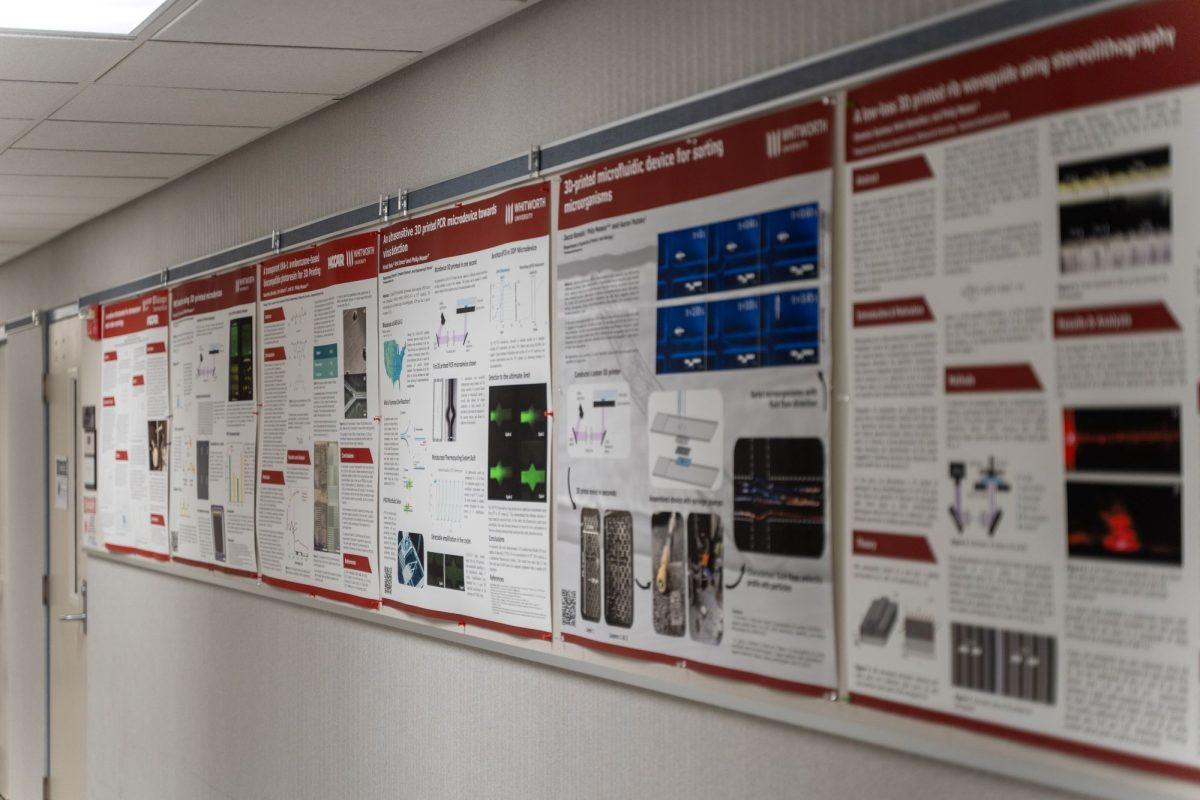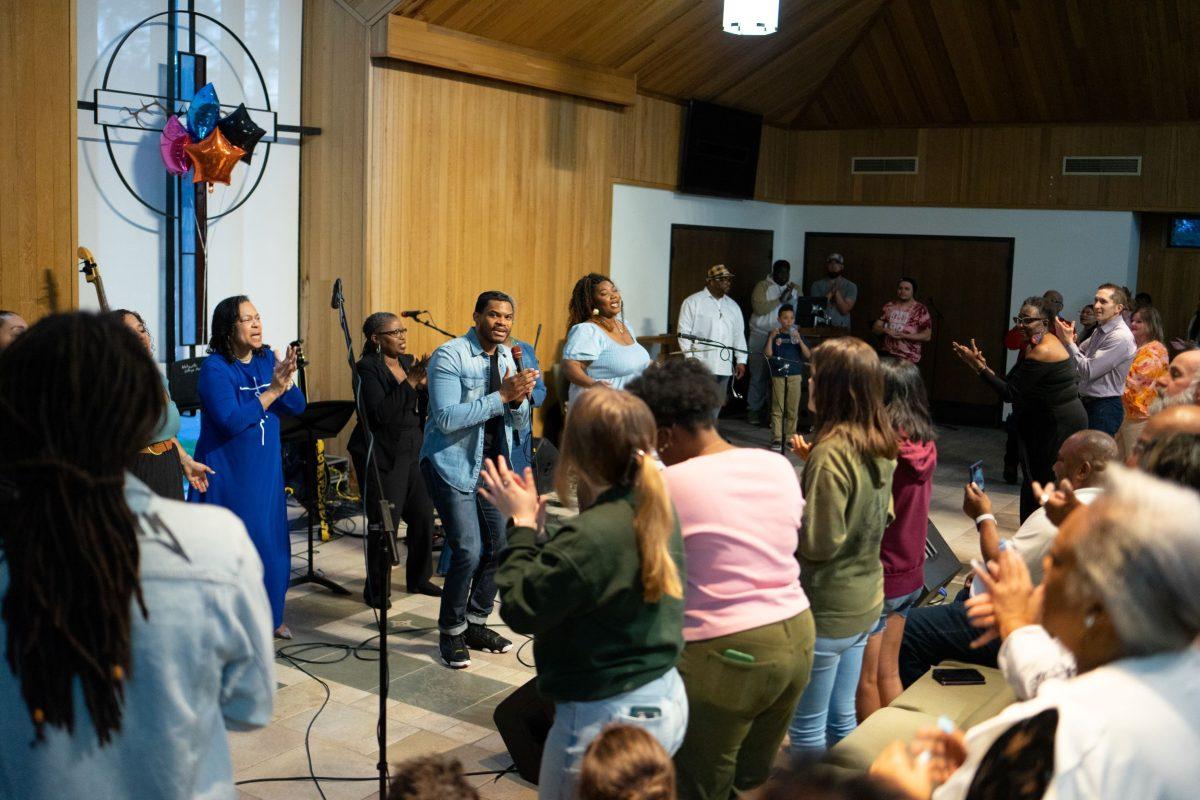Syrian refugees face a long, complicated and often dangerous process when fleeing persecution from their home countries, the director of World Relief Spokane, Mark Kadel, said in a lecture in Robinson Teaching Theatre Thursday night.
Kadel described the process to an audience of around 100 students and members of the community that all refugees face. Recent numbers put the total of Syrians that have fled their country at over 3 million, Kadel said. Those people are not considered refugees until they cross a border, which is a fraught process to get that far.
Refugees are forced to flee their home country because of oppression due to race, religion, nationality or membership of certain social group of political opinion, Kadel said. A key part of the definition is that being a refugee is not a choice.
“Refugees are probably the most vetted immigrants coming to the United States, particularly from the Middle East,” Kadel said. He opened his lecture by describing the fifth Syrian refugee family who had settled in the United States and the first in Spokane. He described the persecution that they faced as they left their home country. They dealt with overcrowding and persecution, both in their home country and in the refugee camp they escaped to.
The lengthy process to move to another country as a refugee generally takes years to be completed, meaning that some children will be born and raised in a refugee camp, Kadel said. But, when that day comes, it is worth it.
“One day, they were the lucky people,” Kadel said. “They won the lottery.”
The challenges that refugees face do not end when they escape their home country, Kadel said. They are subject to proving that they qualify for refugee status and waiting, often for years or decades, to be considered for repatriation. Kadel played a video that showed the impact of improved technology on dealing with the refugee crisis in Syria.
The United Nations updated its systems to deal with the huge influx of refugees caused by crisis in Syria. The UN uses technology such as biometrics in refugee camps in Middle Eastern countries including Turkey and Lebanon to ensure accuracy, as well as updated registration files so that refugees can have access to aid that they desperately need, according to the video.
“At no fault of their own, these people are suffering untold devastation because they’re on the wrong side of a political equation,” Kadel said.
Kadel mentioned that kidnappings and ransoms are common in Syria. Torture as well as human trafficking is an issue that these refugees face, especially with older, wealthy men coming in from other countries and seeking young girls, marrying them, abusing them and divorcing them, leaving them hopeless and desperate when they are returned to the refugee camps, Kadel said.
“Warfare in Syria has left many displaced, leaving a traumatized population,” Kadel said.
World Relief does a lot of work to help refugees once they enter the United States. Kadel cited English classes, job training, cultural lessons and help to find housing as examples. When asked about what the average person could do to help, Kadel mentioned that they are always looking for volunteers to help with a wide variety of things from helping refugees move into to homes to kicking around a soccer ball with a refugee child.
He restated the length and complexity of the refugee repatriation process. Approximately 1 percent of the 17.9 million refugees in the world today will be resettled each year. As for the United States’ contribution, this year’s number is 70,000. Kadel recognizes the challenges of the current political climate, but thinks the United States could do more.
“I think we could settle more,” Kadel said. “Obviously there’s a much greater need.”
Contact Whitney Carter at [email protected]





